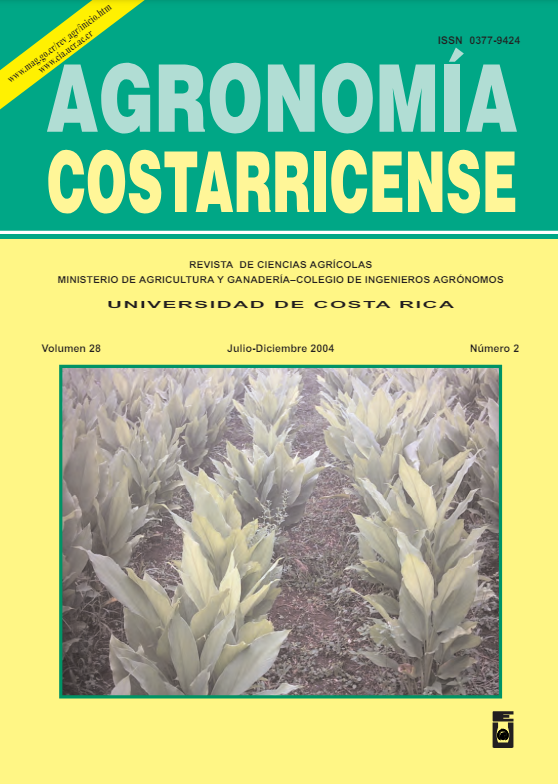Abstract
The performance of open-pollinated single tree families of mahogany Swietenia macrophylla from populations in Mesoamerica was evaluated in 3 trials established in northern Costa Rica. The trials at Upala and Lagartera (Los Chiles) contain families of Costa Rican origin, while the Laberinto (Los Chiles) trial contains material from 6 Central American countries and Mexico. Data on root-collar diameter, total height, survival, and Hypsipyla grandella attack were collected. The analysis indicate significant family and population differences for height and diameter, but H. grandella attacks were uniform over all sites. Heritabilities at 1.7 years for Upala were 0.54±0.02, and 0.55±0.02 for diameter and height, respectively; after this measurement this trial was burned completely as a result of drought in El Niño year, so further measurements could not be made. Lagartera at 0.7 years presented heritabilities for diameter and height of 0.55±0.008 and 0.57±0.008. Laberinto presented heritabilities of 0.48±0.01 for diameter (2.9 years), 0.6±0.01 for height, 0.1±0.002 for H. grandella attack; 0.07±0.002 for number of shoots, and 0.18±0.003 for stem form 2.7 years after planting. Flooding in 1998 damaged the Lagartera trial, which was also severely attacked by H. grandella. This resulted in very low heritabilities, with large standard errors; therefore its genetic values in the first measurement are considered unreliable. The plantation recovered, and after 3 years genetic values were comparable with the other 2 trials. Isolated mother trees produced slow-growing families in most cases, in comparison with the clustered ones or those in natural dense forests, suggesting inbreeding mechanisms.
Comments

This work is licensed under a Creative Commons Attribution-NonCommercial-NoDerivatives 4.0 International License.
Copyright (c) 2024 Agronomía Costarricense


